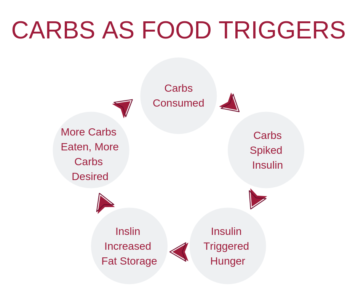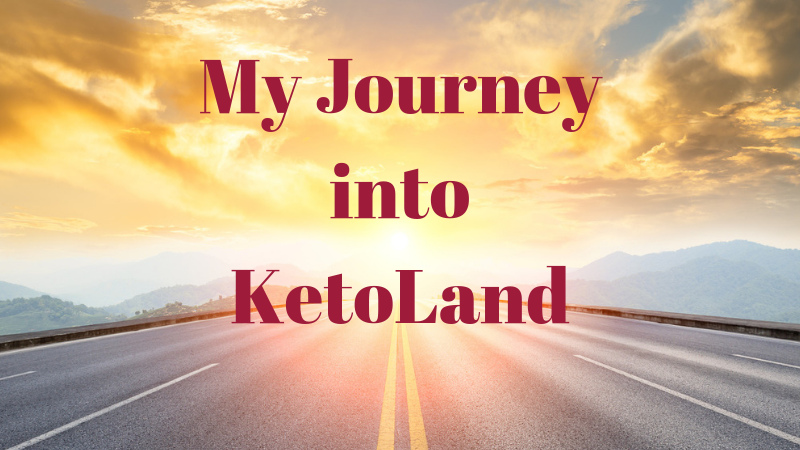In my last month’s article, Keto Hack: Help or Hype, I gave an overview of multiple physicians utilizing scientific studies in their practice to address a variety of medical issues via diet. I then promised this month to describe my journey into KetoLand. Just as understanding the new Star Wars movie in relationship to the original trilogy characters, for you to relate to how far I have come, first I need to introduce you to who I was before this journey started.
Have you ever known a new mother who gained 30 pounds in the first six months after birth while breastfeeding twins? Typically, a twin mom breastfeeding her babies would burn at least an extra 500 calories per day, but for some reason I was gaining? Though I didn’t know it at the time, my weight gain was probably related to the quick, packaged, carb-loaded foods I was consuming and possibly was the first sign that I was, what many are calling today, “carb-intolerant.”
When my mother died about a decade later, that sent me into an absolute tailspin. Since many of her problems appeared to be diet-related to what was called at that time, “Sugar Diabetes,” I went as far away from sugar and processed food as possible. Her father had also died of complications of diabetes, so I knew it had a hereditary component. I started avoiding sugar, bought organic foods, ground my own grains, and baked whole wheat bread, making everything from scratch, all to prevent our family from falling into future health problems. In an effort to help other families, I then created whole-grain bread baking, healthy cooking, and nutrition classes. For the next 15 years, we avoided sugar, and I strove to feed our family as healthy as possible, similarly to Adrienne from WholeNewMom.com.
However, as our children began to leave home, I fell back into the old habits of eating whatever was easy and convenient with lots of fast foods and sweets, and predictably, started gaining weight. But the more I followed the recommended low-fat diet to lose, the hungrier I became and gained more weight. I tried every diet imaginable, including, “The Half-as-Much Diet,” a product of my own brainstorm rationalizing that if I eat half as much as my husband at each meal, it would help me lose weight. I didn’t.
Even with all of my siblings and parents having heart disease and several having diabetes, I still was in denial and wouldn’t even consider myself a candidate for these issues. But a visit to a health care provider and some extensive lab work about 19 months ago showed differently. When an anti-inflammatory diet was recommended to lower my risks (limited amounts of beef and chicken, green leafy vegetables, a few berries, some healthy fats, and lots of water), I had my doubts, but soon, without the grains, breads, dairy, sugars, or starchy vegetables, began to lose weight.
After many months of following this anti-inflammatory diet, I began to search for medical research supporting this type of eating. I found that if additional healthy fats were added and carbohydrates were limited to about 5% of the daily plan, it would fall under the category of a ketogenic diet.
As I started the Keto Diet, my weight further plummeted and my liveliness soared and needing naps after meals became a thing of the past. If you haven’t experienced it, it is hard to explain, but as I went into nutritional ketosis (not the dangerous keto-acidosis), I began to experience a type of euphoria, a deep satisfaction with myself. With the increased mental clarity and energy level, my capability to tackle projects and complete them became incredible. It was almost like the drive and determination of my youth returned. It reminded me of driving in the express lane of a toll road going 75 mph, knowing I was going to arrive at my destination much quicker as I saw a multitude of other drivers just sitting on the parking-lot like freeway.
 I realized that my body was being truly nourished by food for the first time in a long time, as this type of eating bypassed the insulin-resistance issues I had experienced for years. Additionally, once I became a fat-burner, (burning ketones for fuel instead of glucose), I simply had a different relationship with food. Gone were the cravings, that insatiable hunger that I used to experience. Before journeying into KetoLand, I didn’t want a Snickerdoodle from the oven, I wanted a plate of them. Now, cookies just aren’t that important. Since at one point I could have been ranked right up there at the top with Cookie Monster himself, it is amazing that no longer describes who I am.
I realized that my body was being truly nourished by food for the first time in a long time, as this type of eating bypassed the insulin-resistance issues I had experienced for years. Additionally, once I became a fat-burner, (burning ketones for fuel instead of glucose), I simply had a different relationship with food. Gone were the cravings, that insatiable hunger that I used to experience. Before journeying into KetoLand, I didn’t want a Snickerdoodle from the oven, I wanted a plate of them. Now, cookies just aren’t that important. Since at one point I could have been ranked right up there at the top with Cookie Monster himself, it is amazing that no longer describes who I am.
While sustaining a 30-pound weight loss for over a year, my annual blood work improved and those pesky inherited markers for disease have started turning around! The higher fat recommended on a Keto Diet adds flavor to my diet and satisfies my appetite, so I don’t experience hunger in ketosis! I am also a changed woman, for food no longer identifies my priorities. Although I am not a physician and cannot prescribe for you, here are the top five lessons I personally learned within KetoLand:
1. Eating six meals a day isn’t healthy for me.
Although eating small meals throughout the day has been touted for decades, that simply raises insulin. (Note: My favorite insulin scientist/researcher is Dr. Benjamin Bikman, and his step-by-step guide about insulin-resistance is written in lay-terms: The Truth about Why We’re Sick and Fat.)
2. Late night, and other snacking, isn’t good for me.
Did you know that late-night snacks could prevent your body and brain cells from breaking down the old proteins and the building new structures? This could be the cause of worsening memory with age, and several physicians now recommend a 12-hour window per day without food, including Dr. Bredesen, as described last month.
3. How, when, and where I eat is important!
Leave It to Beaver meals and mealtimes were different. In the 50’s and 60’s, while families might have eaten some white bread, sugar, and pasta, they sat down as a family, usually twice a day, and packed their meals with multiple sources of natural fats, bacon, eggs, butter, and meats, always free of preservatives and fake-foods.
4. What I prepare as a mother/grandmother affects my children/grandchildren.
Dr. Jong Rho, a pediatric neurologist from Canada states, “You become what you eat; it is a long-term effect,” and so do your children. He reports that He when the fat content was much higher 50 years ago, it promoted health, but when fat was severely decreased, and carbs increased, health began to decline. He recommends reversing the two.
5. N=1 and I am worth it!
The first year of my journey into KetoLand, I guessed how my eating affected my blood glucose and ketones, for I thought the test strips were too expensive. But finally, I decided I was worth it and to scientifically isolate the culprits increasing my blood sugar (and therefore insulin and ketones), I needed objective measurements. Once I began utilizing those strips daily, I identified which foods were symbiotic with my body and which stressors, including a lack of consistent sleep, would raise my blood sugar apart from foods eaten. I finally decided, if I wasn’t caring for myself, truly no one else could.
Finally, learning how to stay in ketosis continues to decrease my insulin-resistance and has stopped my food cravings. Below I have listed a few of my favorite keto resources.
Take Home: You alone know what you need at this stage in your life. Maybe the Keto, Mediterrean or even Paleo Diet (based on whole-foods) would help you and your family accomplish your goals. It may not even be the right time to make a change, but after you investigate multiple choices, I hope you will discuss this with your health care provider. Whatever you choose, may you always remember to take the time to care for yourself, so you can care for others. In other words, put on your own oxygen mask first!
Favorite Keto Resources:
-
- Keto Recipe Blog, WholesomeYum.com, Maya Krampf is founder of this keto-website that reaches millions. She is a mom of two and former software engineer.
- Keto Tracking App, KetoDiet App, Martina Slajerova from UK. Launched keto blog in 2012, author of several ketones cookbooks, worked with team of healthcare professionals including registered dietitian and PhD nutritional biochemist to create the app and recipes.
- Consolidation of Keto Research, DietDoctor.com, Dr. Eenfeldt, started low-carb blog in 2007. Scores of interviews with medical physicians about keto. 100% free from any industry funds, ads, or product sales
- “13 Things Everyone Gets Wrong About the Keto Diet,” Readers’ Digest Article













